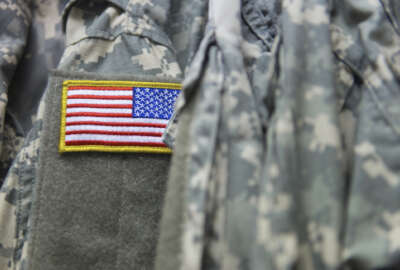
As cyber units expand, National Guard has training backlog
As the National Guard expands its cyber forces to 30 units, it is still trying to figure out how to deal with a cyber training backlog.
The National Guard and reserves are upping the ante on cyber forces, but the Guard is facing a cyber training backlog to get there.
The National Guard plans to have 30 cyber units that will be stationed in at least 30 states by fiscal 2019, said Chief of the National Guard Gen. Frank Grass during a March 16 Senate Appropriations Defense Subcommittee hearing.
In addition, the Air Force Reserve plans to increase its number of cyber units from 13 to 17. The Army Reserve is now working with its Army Cyber Command and the Defense Department to expand its cyber units past 2019.
But Grass said the National Guard has a backlog in training.
Sen. Jerry Moran (R-Kan.) brought up one example: at McConnell Air Force Base in Kansas there is a shortage of cyber trainers for the number of Air National Guard cyber units.
“There is a sufficient number of people that want to fill those slots, but an insufficient number of people who are training those individuals to do so,” Moran said. “One of the new cyber squadrons at McConnell has 42 vacancies. I don’t think this is because we can’t find the individuals who want to fill those 42 vacancies, it’s because we only have three of those folks who are in a position to receive the training this fiscal year.”
Grass said he is looking into ways to accelerate the training.
Grass said cyber units go through three types of training, which include basic skills, certifications for working in a cyber range and joint training.
“Our goal for cyber defense is to train, equip and provide highly-skilled forces responsive to the needs of the nation,” Grass said in December. “Working with the Army and Air Force, our cyber squadrons and teams will provide trained and ready soldiers and airmen to support requirements established by the services and U.S. Cyber Command.”
While the backlog stands, there is no shortage of volunteers for guard or reserve cyber roles.
Grass said 10 temporary positions have been created within the Army Guard to help recruit troops to cyber forces.
They “seed the population out there to see where we can attract the men and women from academia, from business that have cyber skills and bring them on board now because we know the requirement is going to grow,” Grass said.
Lt. Gen. James Jackson, chief of the Air Force Reserve, said the Air Force has been extremely successful in recruiting to its new cyber forces.
“We’ve got approval from our leadership to bring in cyber professionals with three years time in constructive credit so that they don’t have to take those first three years and build into an airman that can do that type of mission,” Jackson said at the subcommittee hearing.
Lt. Gen. Timothy Kadavy, directorof the Army National Guard, said cyber units can be mobilized in support or enhancement roles to active duty troops.
“As we get them fully operational then we can also provide in that capacity [inactive duty training] and [active training] where it fits additional capacity in the current environment of the active component teams,” Kadavy said.
In December, the National Guard announced it was activating 13 cyber units that would be spread throughout 23 states.
As of December, the role of the units was to lay out a larger foundation for future forces schedules for activation.
The National Guard plans to eventually have cyber forces in all 50 states.
Copyright © 2025 Federal News Network. All rights reserved. This website is not intended for users located within the European Economic Area.
Scott Maucione is a defense reporter for Federal News Network and reports on human capital, workforce and the Defense Department at-large.
Follow @smaucioneWFED



